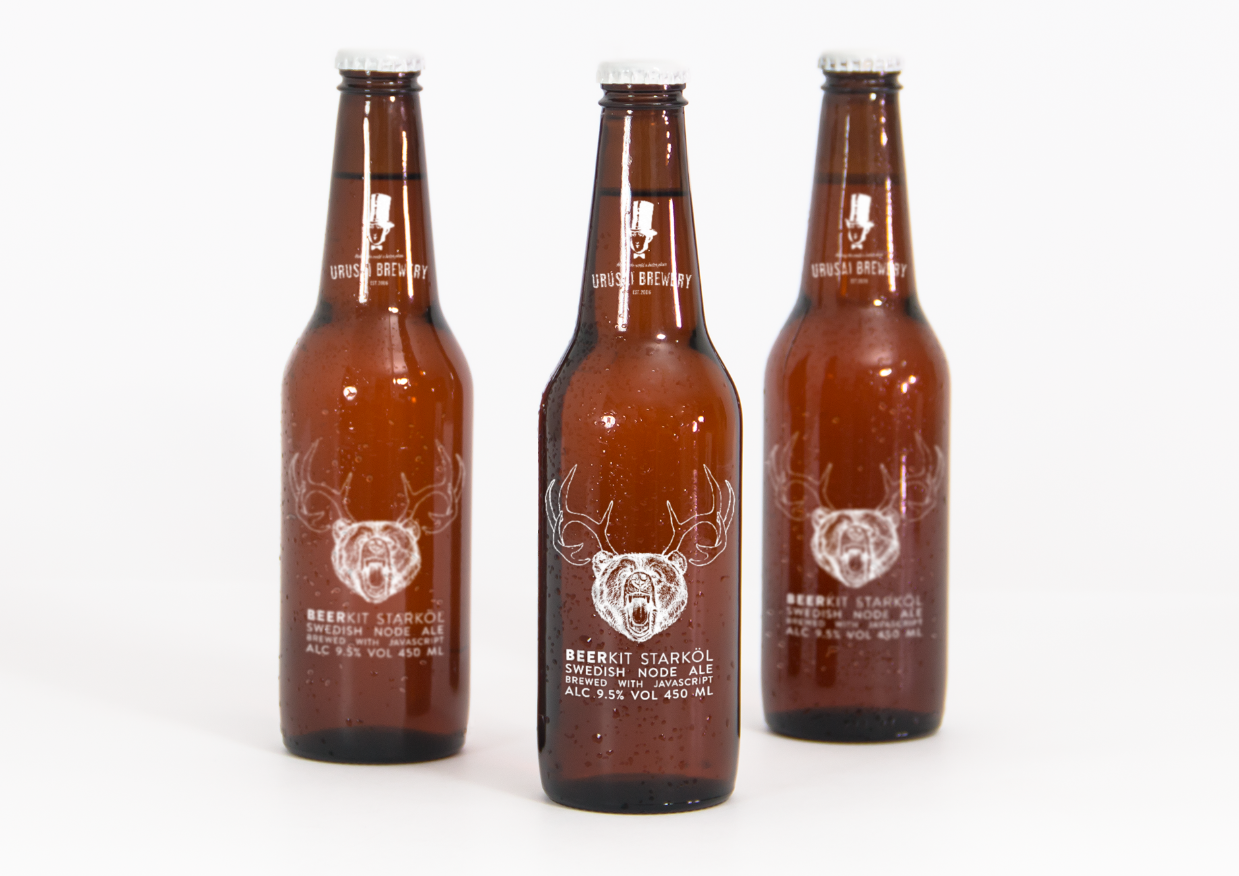BeerKit
A Hapi version of VodkaKit.

Getting started
-
Install BeerKit globally
npm install -g beerkit -
Create a new project folder and
cdinto itmkdir myProject && cd myProject -
Initialize BeerKit
beerkit init -
Install required dependencies
npm install -
Start the application
npm start
File structure
Statics
Here you can put your static files.
Default path: frontend/statics/
Override with: this.statics
Plugins
Here your plugins will be stored.
Default path: backend/plugins/
Override with: this.plugins
Views
This is where your HTML-template are stored. BeerKit is using HandleBars as the template-ing system.
Default path: frontend/views
Override with: this.views
Javascript
At the moment there is no compiler for Javascript in place. Will be added in a future version of BeerKit.
Stylesheets
By default there is no compiler for CSS in place in BeerKit. I strongly advice that you compile this with npm scripts. A folder is created (assets/scss) which is more of a suggestion where you can put your SCSS, for example.
Install the npm-modules node-sass and watch and enter the following (or similar) in the scripts-area of package.json:
"build:css": "node-sass --output-style nested assets/scss/style.scss -o frontend/statics/",
"watch:css": "watch \"npm run build:css\" assets/scss/",
Then you can either run npm run watch:css to watch for changes and compile css, or just run npm run build:css to build it once.
Plugins
Creating a Plugin is very simple. For more information on how to create Plugins visit Hapi's tutorialpage.
In BeerKit you will need at least two files in your plugin.
- mainfile.js
- package.json
BeerKit will go through all directories in the Pluginspath (default: backend/plugins/) and look for a file named package.json. It will then extract mainRequire of that file and use whats in that attribute when registering the plugin.
Here is an example for each file:
package.json
{
"name": "My Plugin",
"version": "1.0.0",
"description": "My plugin",
"main": "mainfile.js",
"mainRequire": "mainfile",
"author": "Author",
"license": "MIT"
}
mainfile.js
exports.register = function (plugin, options, next) {
plugin.route([
{
method: 'GET',
path: '/beer',
config: {
handler: function (req, rep) {
rep.view('beer', {numOfBeer: 20});
}
}
}
]);
next();
};
exports.register.attributes = {
pkg: require('./package.json')
};
Load other plugins
If you want to load plugins that you have installed with npm or they are in another directory you can use this.loadPlugins
Example:
this.loadPlugins = [
{
register: require('plugin-to-load'),
options: {}
}
];
Routes
If you want to add route(s) without having to involve Plugins you can just add a callbackfunction to start in index.js.
Instead of it being just:
start();
You can change it to:
start(function (app) {
app.route({
method: 'GET',
path: '/myRoute',
handler: function (req, res) {
res({status: true});
}
});
});
Reference
this.port
(int) Port that the application will listen to. Defaults to process.env.PORT and `8000
this.views
(string) Path to view/templates files. Defaults to ./frontend/views
this.statics
(string) Path to static assets. Defaults to ./frontend/statics
this.plugins
(string) Path to your plugins. Defaults to ./backend/plugins
this.loadPlugins
(array) Array with objects that loads external plugins. Example here.
this.logging
(object) This property should be an object with one or both of the following keys:
this.logging.file(bool)- Set to true if you want to log errors to file. Logpath is./logs/app-good.log. Default is falsethis.logging.console(bool)- Set to true if you want to log requests and errors in console. Default is false
this.mongodb
(string) If defined, BeerKit will setup a Mongo-instance. Example: mongodb://localhost:27017/beerkit
To use MongoDB in your route-handlers use
var db = req.server.plugins['hapi-mongodb'].db;- To get access the databasevar ObjectID = req.server.plugins['hapi-mongodb'].ObjectID;- To get access to the ObjectID-function
this.sessions
(object) If defined, BeerKit will setup a Redis-instance where it will save your sessions. This property should be and object with the following key and subkeys:
redis(object)name(string)- Name of your sessionhost(string)- Hostname to the redis-serverpartition(string)- Partition on the redis-server
To use caching, check this tutorial on hapijs.com
start(callback)
(function) Method to start your server.
callback- If you use callback function you can set your own routes etc. without having to create a plugin. Check the (Routes)[#routes] section for this.